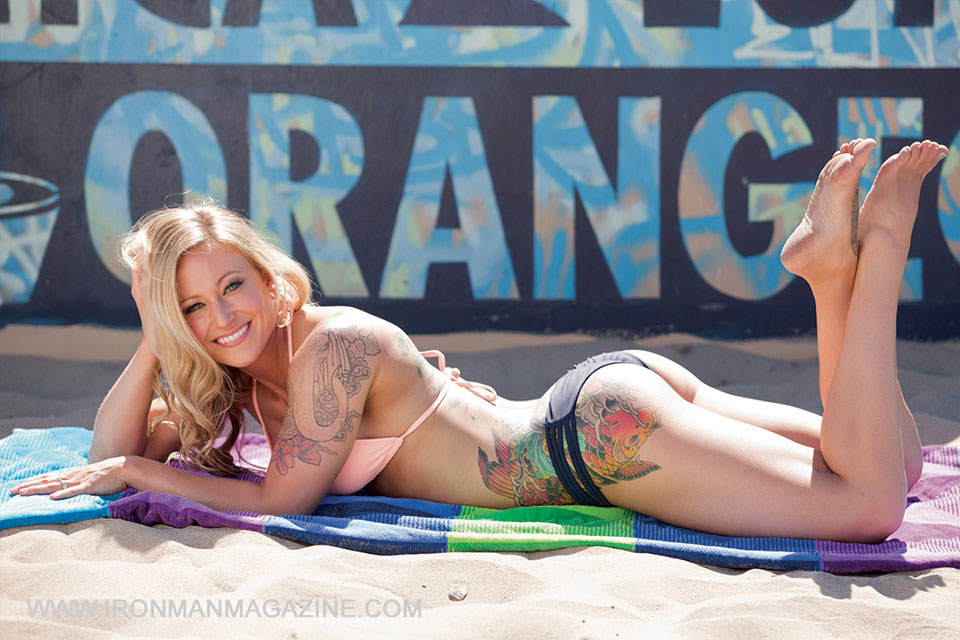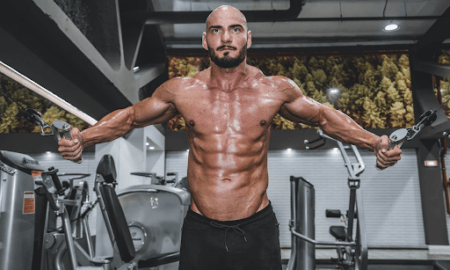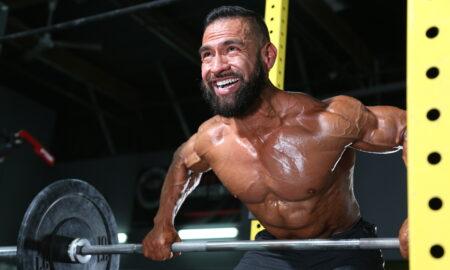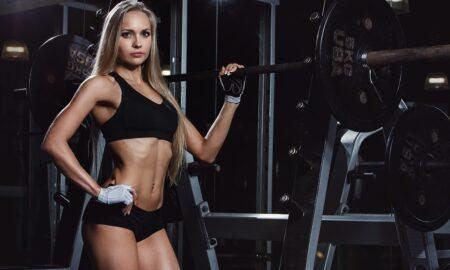

Q: I started training for kickboxing about seven months ago and fell in love with weightlifting, powerlifting and bodybuilding. I have decided to continue with natural bodybuilding. I’m in a clean bulking cycle at the moment, and I will start cutting when water polo season starts in the next couple months. I wanted to ask for some advice on overtraining and recovery nutrition. After a heavy back or leg day I can still feel it into the next week. I know I’m probably overtraining, and I feel that I can definitely improve my nutrition. Any advice would be appreciated.
A: Congratulations on being bitten by the iron bug! It’s a wonderful addiction that I hope you will pursue for the rest of your life. I think you’ll also find that adding bodybuilding to your exercise program will help you tremendously in other sports like kickboxing and water polo.
Your question about recuperation is an excellent one. So many aspiring bodybuilders, especially young athletes, mistakenly think that they can train every day as long as they are training different muscle groups. Avoiding overtraining involves not only training different bodyparts each day but also taking into account your overall body system.
Every time you train at the gym, you are taxing your recuperation. Your energy levels are being depleted, and your nervous system is also affected. As you mentioned, when you do a heavy back or leg day at the gym, you can feel it for days afterward.
That’s the reason it’s important to take days off from the gym in which you do no training at all—no weight training, cardio or even other sport—if you’re trying to gain weight and build muscle. These complete rest days will enable your muscles, your nervous system and your body as a whole to recuperate and be rejuvenated.
Nutrition is also a big part of helping your body grow. The calories and nutrients you eat will help you to build more muscle tissue and restore your glycogen levels before your next workout.
Bodybuilders and other weight-training athletes need to eat more protein than the average person. The amino acids from the protein foods we eat are the primary nutrients responsible for building muscle. Obviously, sedentary people who are not tearing down muscle tissue during exercise will not need as much protein because they have no need to rebuild and repair that tissue.

Eating several smaller meals throughout the day is much more efficient for tissue repair and growth than eating bigger meals less frequently. For that reason most physique athletes eat an average of six small meals a day, spaced three hours apart. When you eat smaller amounts of food more frequently, your body can digest and assimilate the amino acids for better muscle growth and repair.
I recommend that you eat more than one gram of protein for each pound of bodyweight. For example, if you weigh 200 pounds, you should eat 1.25 to 1.5 grams of protein per pound, which would be 250 to 300 grams each day. If you eat six meals per day, that’s a little more than 40 grams of protein at each meal.
Carbohydrates are also important for energy and growth. They’re the body’s preferred source of energy. By eating slow-digesting complex carbohydrates, you will store the nutrients in the muscle cell as glycogen, which is used for energy during anaerobic training, such as weight training. If you don’t eat enough carb, you will lack the energy needed for your intense, hard-training sessions.
How much carbohydrate you need is an individual thing. Those who are young or natural ectomorphs can usually eat a lot more carbohydrates than those who are over 40 or more endomorphic in makeup. Experiment with the amount of carbohydrates you eat to get the results that you want. When I was in my 20s and trying to bulk up, I would eat twice as many grams of carb as protein in order to add more muscle and gain weight.
One final comment about your recuperation. Be very careful not to do too many sets during a training session. I like the fact that you are training so hard that it takes you days to recover. That tells me that you’re putting a lot of effort into your workouts.
As Lee Haney so famously said, however, “Stimulate, don’t annihilate.” Do the right exercises and hit them hard to train your muscles to grow, but don’t do too many sets or kill yourself at every training session. After you stimulate the muscles, end the workout and go home and recuperate.
Editor’s note: John Hansen has won the Mr. Natural Olympia and is a three-time Natural Mr. Universe winner. For information on his exciting new program, MP6 Cycle Training, check out his Web site at www.JohnHansenFitness.com and become a member. To attend the Natural Olympia Fitness Getaway, go to www.NaturalOlympia.com. Send questions or comments to [email protected]. Look for John’s DVD, “Natural Bodybuilding Seminar and Competitions,” along with his book, Natural Bodybuilding, and his training DVD, “Real Muscle,” at his Web site or at Home Gym Warehouse, www.Home-Gym.com. IM






















You must be logged in to post a comment Login